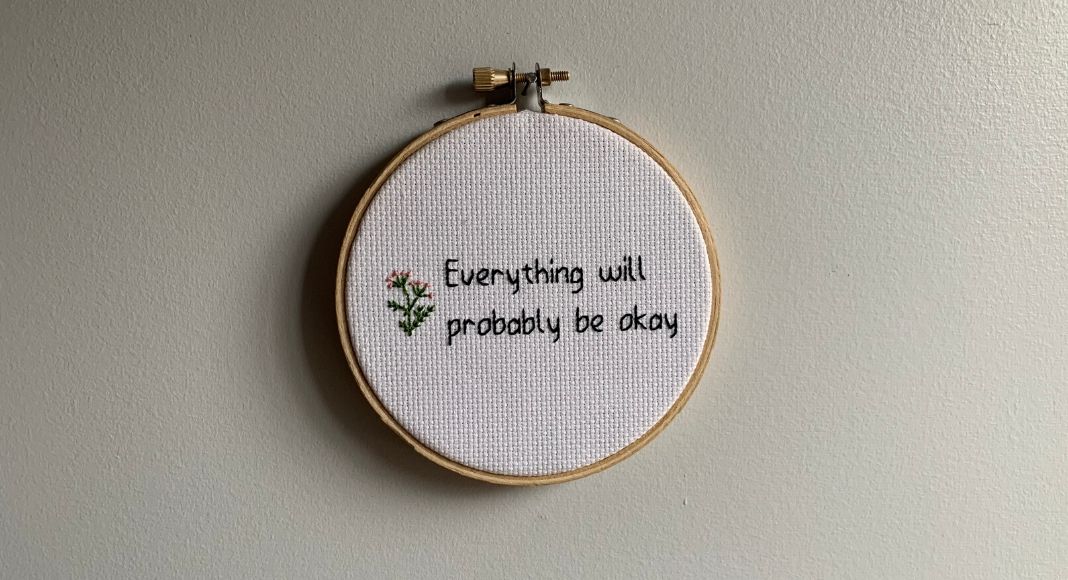If you think your child is anxious, she probably is. You might recognize some of the signs: lots of questions about how things will go down, obsessing over a test or a friend conflict, meltdowns over almost being late for school/practice/appointment, worrying about failing tests no matter that it has never happened before. Also, the “what ifs” abound: “What if my teacher doesn’t like me? What if I don’t make the team? What if people laugh at me? What if we lose?” Maybe you had anxiety as a kid and you recognize the feelings your child is having.
Many patients I see are brought in by their parents because their child’s stresses and worries are taking over family life. Parents are tired of having the same old arguments with their child. Mom and dad know that in the grand scheme of things, probleme du jour is not a big deal. The child knows that THIS! THIS THING RIGHT HERE is a BIG DEAL. Right now.
Usually, they are both right.
Here are some hints I’ve learned over the years about worries:

Reassuring Doesn’t Help. It Usually Makes It Worse
Many children with anxiety, specifically OCD, need frequent reassurance. But here’s the thing: reassurance reinforces the idea that a person cannot cope with uncertainty. We all have worries and we need to help our kids manage the worries, not eliminate them. The goal is to change your child from thinking “I need mom/dad/teacher/friend to tell me it’s gonna be fine” to “I’m freaked out by this but I know it will be fine.”
We can’t promise our kids that nothing bad will happen. We can, however, remind them that even though something terrible COULD happen, it probably won’t. And even if it does, they’ll be able to handle it. Plus, worrying about it wouldn’t have prevented the thing from happening anyway.
Try not to get sucked into the reassurance cycle; it often happens before you know it. I suggest helping your child write down some calming, practical thoughts on nice paper and keeping them handy. Things like “I’ve handled this before, I can do it again” or “What I’m afraid might happen probably won’t.” When your child comes to you needing reassurance, don’t get frustrated and don’t tell them “not to worry.” Calmly refer them to their cards and keep going about your business.
Worries Are Contagious
Lots of feelings are. Intensive parenting makes worriers of us all: What is my child missing out on? Why does my friend’s son seem to have all sorts of hobbies and passions and mine doesn’t? I do my best to not let my own worries get the best of me. And then I overhear the latest discussions about academics at school or the club team tryouts and then my brain is ready with its “You are parenting EVERYthing wrong!” thoughts.
Kids pick up on our worries. Everyone does. The brain of a worrier thinks that if someone else is worried (about anything, really) then maybe it should be worried too. In these instances, I encourage awareness and mindfulness. If you find yourself worrying a lot, look into it for yourself. The calming cards can come in handy for you, too.
Don’t Wait, Listen to Your Gut
If your gut starts telling you that your child might have a blossoming worry problem, pay attention to it. While I generally like a wait-and-see approach with most ailments, I like to nip worrying in the bud. Once you think you might have a worry problem on your hands, take your child in to assess if there is a problem and get some tools to address it.
Our brains like pattern and repetition. The more the pattern is repeated, the harder it is to break. Unaddressed worrying in middle schoolers often turns into clinical anxiety in high schoolers. Blossoming anxiety is sneaky; it may go away for a bit. And then it usually comes back. In another form. About something else.
Early intervention is important. If your child pushes back on an appointment for worries, remind them that just like strep throat, sprained ankles and rashes, worries are a common ailment and they need to be addressed like anything else.


















